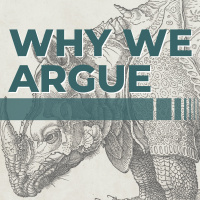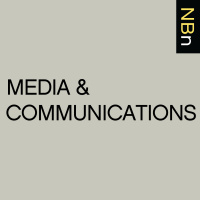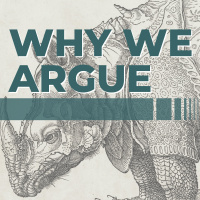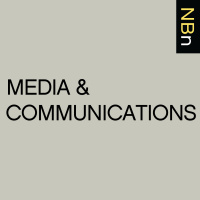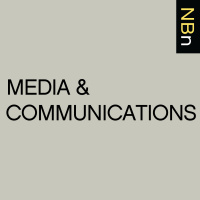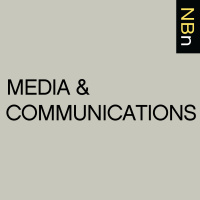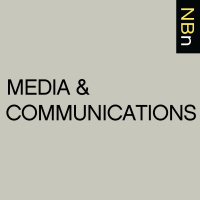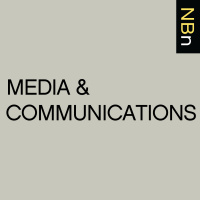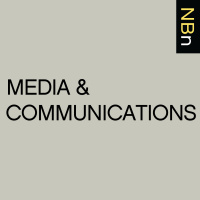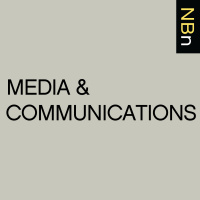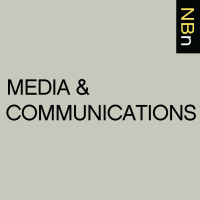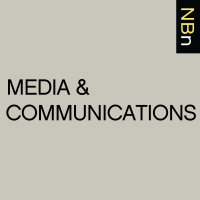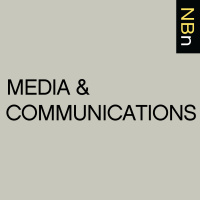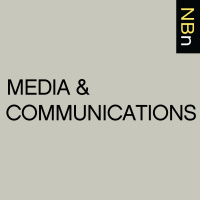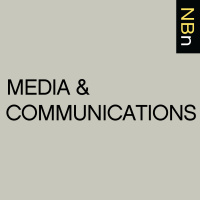Synopsis
Interviews with Scholars of Media and Communications about their New Books
Episodes
-
Kathleen Collins, “Dr. Joyce Brothers: The Founding Mother of TV Psychology” (Rowman and Littlefield, 2016)
22/04/2017 Duration: 53minIn her book, Dr. Joyce Brothers: The Founding Mother of TV Psychology (Rowman and Littlefield, 2016), Kathleen Collins presents an extensive history of the woman who is arguably the most famous television psychologist. Starting with Brothers’ appearance as a boxing expert on the $64,000 Question in the 1950s, and bringing readers through her decades-long career in television and radio, Collins argues that Brothers created the personal approach to psychology that became the norm for television other popular media. Collins examines the different ways that Brothers created a career for herself for over 50 years, looking at her role as psychologist, as well as her roles as guest star, actor, and media celebrity. She looks at the ways Brothers used her savvy business sense to create a multilayered career that made vital contributions to psychology, television, and U.S. cultural history. Collins uses Brothers’ personal papers and her published interviews as well as her own interviews with Brothers’ daughter and col
-
Democracy and Dialogue Online with Joshua Cohen
20/04/2017 Duration: 36minJoshua Cohen is a faculty member of Apple University, and is Distinguished Senior Fellow at the School of Law, the Department of Philosophy, and the Department of Political Science at Berkeley. He is the author of several influential academic articles, many of which are collected in Philosophy, Politics, Democracy(Harvard 2009), and The Arc of the Moral Universe and Other Essays (Harvard, 2011). Since 1991, Cohen has edited the Boston Review. The "Why We Argue" podcast is produced by the Humanities Institute at the University of Connecticut as part of the Humility and Conviction in Public Life project. Learn more about your ad choices. Visit megaphone.fm/adchoices Support our show by becoming a premium member! https://newbooksnetwork.supportingcast.fm/communications
-
Donna Freitas, “The Happiness Effect: How Social Media is Driving a Generation to Appear Perfect at Any Cost” (Oxford UP, 2017)
18/04/2017 Duration: 24minIn The Happiness Effect: How Social Media is Driving a Generation to Appear Perfect at Any Cost (Oxford University Press, 2017), Donna Freitas investigates the darker side of social media use and explains how pressure to appear happy and successful online can actually make people less happy in the real world. Using the stories of college students she interviewed as a framework, Freitas builds a dynamic argument and offers concrete tools for how teachers, parents, and society as a whole can help young people take control of their smartphones and of their own happiness. Donna Freitas is a Nonresident Research Associate at the University of Notre Dames Center for the Study of Religion and Society, and when she is not traveling for research she teaches in the Honors Colleges at Hofstra University. She is the author of Sex and the Soul: Juggling Sexuality, Spirituality, Romance, and Religion on America’s College Campuses (Oxford University Press, 2008), as well as several novels for young adults. A regular contrib
-
Rebecca Scales, “Radio and the Politics of Sound in Interwar France, 1921-1939” (Cambridge UP, 2016)
13/04/2017 Duration: 01h49sWhat did sound mean to French people as radio and other listening technologies began to proliferate in the early twentieth century? What was the nature and significance of French auditory culture in the years between the two world wars? These are two of the central questions that Rebecca Scales pursues in her new book, Radio and the Politics of Sound in Interwar France, 1921-1939 (Cambridge University Press, 2016). This is not a book focused on the institutional history or content of French radio during this period, however. Rather, Scales examines closely a range of ideas about sound and the development of what she calls the “radio nation,” a space of listening, cultural identity, and citizenship. Access to the airwaves, the “right to listen,” and the question of whether radio did or did not reflect the nation and its different members became vital areas of discussion and debate in the 1920 and 30s. Radio and the Politics…explores the dynamic history of radio at a critical juncture in modern French politica
-
Democracy and Social Media with Michael Lynch
05/04/2017 Duration: 26minSocial Media rewards snap judgments and blind conviction. Michael Lynch finds this troubling. Michael P. Lynch is Professor of Philosophy and Director of the Humanities Institute a University of Connecticut. His research concerns truth, public discourse, and the impact of technology on democratic society. The "Why We Argue" podcast is produced by the Humanities Institute at the University of Connecticut as part of the Humility and Conviction in Public Life project. Learn more about your ad choices. Visit megaphone.fm/adchoices Support our show by becoming a premium member! https://newbooksnetwork.supportingcast.fm/communications
-
Free Speech Matters with Robert George
05/04/2017 Duration: 31minThe ‘ideological odd couple’ of Robert George and Cornel West jointly authored a statement defending free speech on campus and elsewhere. Find out why. Robert George is the McCormick Professor of Jurisprudence and Professor of Politics at Princeton University, and the founding director of Princeton’s James Madison Program in American Ideals and Institutions. His research focuses on issues in ethics, political philosophy, and philosophy of law. The "Why We Argue" podcast is produced by the Humanities Institute at the University of Connecticut as part of the Humility and Conviction in Public Life project. Learn more about your ad choices. Visit megaphone.fm/adchoices Support our show by becoming a premium member! https://newbooksnetwork.supportingcast.fm/communications
-
Steven M. Avella, “Charles K. McClatchy and the Golden Era of American Journalism” (U. Missouri Press, 2016)
04/04/2017 Duration: 54minCharles K. (CK) McClatchy was a towering figure in the making of Sacramento and the inland empire he liked to call Superior California. As editor of the Sacramento Bee from 1883 to 1936, McClatchy was both ardent booster and strident critic, a man whose voice helped shape Sacramento’s industrial landscape and to set its moral and political tone. In a new biography, Charles McClatchy and the Golden Era of American Journalism (University of Missouri Press, 2016), Steven M. Avella explores McClatchy’s public role as an iconoclastic editor who sketched local battles in dramatic terms of good and evil. Avella also examines the contradictions within the private man and the dark impulses that drove him to bouts of vindictiveness and rancor. McClatchy promoted his beloved Sacramento with a distinctive blend of Progressive politics, but in his later years he suffered from an anachronistic world view that relegated him to the sidelines of American life. This biography, based on extensive primary sources, is a fully dra
-
Steve Aldous, “The World of Shaft: A Complete Guide to the Novels, Comic Strip, Films and Television Series” (McFarland, 2015)
29/03/2017 Duration: 44minWho’s the black private dick That’s a sex machine to all the chicks? (Shaft) Ya damn right Who is the man that would risk his neck For his brother man? (Shaft) Can you dig it? Who’s the cat that won’t cop out When there’s danger all about? (Shaft) Right on They say this cat Shaft is a bad mother – (Shut your mouth) But I’m talkin’ ’bout Shaft – (Then we can dig it) He’s a complicated man But no one understands him but his woman (John Shaft) –Theme from Shaft by Isaac Hayes Mention Shaft and most people think of Gordon Park’s seminal 1971 film starring Richard Roundtree in a leather coat, walking the streets of Manhattan to Isaac Hayes’ iconic theme music. But the black private dick that inspired the black action cinema/blaxploitation film genre actually made his debut on the printed page as the creation of white novelist Ernest Tidyman, who was a seasoned journalist down on his luck when he decided to try his hand at fiction. Shaft was the result, giving Tidyman the break he was looking for. T
-
Kate Murphy, “Behind the Wireless: A History of Early Women at the BBC” (Palgrave Macmillan, 2016)
22/03/2017 Duration: 49minFrom the early days of the BBC in 1922, women were everywhere in the broadcasting company’s offices. They were absent, however, argues Dr. Kate Murphy from most of the historiography devoted to this illustrious institution. In this vibrant monograph, Murphy sets out to find these hidden female figures. A former producer of the long-running program Woman’s Hour and currently a Senior Lecturer at Bournemouth University in the UK, Murphy is cognizant both of women’s contribution to the BBC and of the challenges they face working there. In Behind the Wireless: A History of Women at the BBC (Palgrave Macmillan, 2016), Murphy delivers on the titles promises. First, she offers a detailed portrait of the BBC in the interwar period as a unique workplace complete with medical services, a subsidized canteen, and a country-club for its workers. She demonstrates why the fact that the company was created around on a new technology made it especially suitable for women in general, and ambitious ones in particular. Second, s
-
James McGrath Morris, “Eye on the Struggle: Ethel Payne, the First Lady of the Black Press” (Amistad, Reprint Edition, 2017)
22/03/2017 Duration: 01h59sIn his acclaimed biography Eye on the Struggle: Ethel Payne, the First Lady of the Black Press (Amistad, Reprint Edition, 2017), James McGrath Morris explores the fascinating life of pioneering black female journalist Ethel Payne. Backed by exhaustive archival research, Morris traces Payne’s role in documenting the civil rights struggle during the decades following World War II, before her later impact as the first female African American radio and television commentator on a national network. The New York Times has described Eyes on the Struggle as an “an important and often absorbing new book,” while the Chicago Tribune has contended that Morris’ beautifully written and carefully researched new book “gives Payne’s ground-breaking work the attention it deserves.” Morris’ other books include Pulitzer: A Life in Politics, Print, and Power, which Booklist placed on its 2010 list of the ten best biographies, and The Rose Man of Sing Sing: A True Tale of Life, Murder, and Redemption in the Age of Yellow Journali
-
Travis Linnemann, “Meth Wars: Police, Media, Power” (NYU Press, 2016)
15/03/2017 Duration: 56minIf all you knew about methamphetamines came from popular culture (“Breaking Bad”) or government anti-drug campaigns (“Faces of Meth”), then you’d probably think that the typical meth user was a unemployed, rail thin degenerate with bad acne, no teeth and a penchant for child abuse. In these depictions, all meth users are “tweekers,” that is, very bad people who are addicted to speed (here, meth) and who can’t take care of themselves or others. But it just ain’t so, as Travis Linnemann points out in his thought-provoking book Meth Wars: Police, Media, Power (NYU Press, 2016). The image we get from the media and the law enforcement of meth use is as cooked as Walter White’s meth. In actual fact, very few peoples use meth (even in “Methland,” aka the Midwest) and most of those who do are not dysfunctional “tweekers.” This is not to say that meth isn’t a problem; it is, just like cocaine, heroin, abused prescription medications, and, above all, alcohol. But it isn’t as different from these “normal” drugs as the
-
Glyne Griffith, “The BBC and the Development of Anglophone Caribbean Literature, 1943-1958” (Palgrave MacMillan, 2016)
07/03/2017 Duration: 50minThe BBC radio program “Caribbean Voices” aired for fifteen years and introduced writers like George Lamming, Louise Bennett, Sam Selvon and others to listeners on both sides of the Atlantic. Glyne Griffith’s The BBC and the Development of Anglophone Caribbean Literature, 1943-1958 (Palgrave MacMillan, 2016) is one of a few detailed studies of this program and the people and institutions that made it possible. Griffith makes important arguments about the combined force of letters, texts and broadcasts, and the ways they contributed to emerging nationalisms and territorial identities as the British Caribbean considered its postcolonial future. Learn more about your ad choices. Visit megaphone.fm/adchoices
-
Brian T. Edwards, “After the American Century: The Ends of U.S. Culture in the Middle East” (Columbia UP, 2016)
06/03/2017 Duration: 58minAmerican culture is ubiquitous across the globe. It travels to different social contexts and is consumed by international populations. But the relationship between American culture and the meanings attached to the United States change over time. During the 20th century, the American Century, American culture generally aided in the positive global perception of U.S. policies and governance. In After the American Century: The Ends of U.S. Culture in the Middle East (Columbia University Press, 2016), Brian T. Edwards, Crown Professor in Middle East Studies and Professor of English at Northwestern University, demonstrates how this relationship altered in recent decades. Technological innovation and the emergence of the digital age have drastically changed the nature of cultural circulation and production. Edwards explores the innovative play between global culture and local subjects in Egypt, Iran, and Morocco. He explores the exchange and interpretations between multiple publics that engage culture situated wit
-
Dave Karpf, “Analytic Activism: Digital Listening and the New Political Strategy” (Oxford UP, 2016)
09/01/2017 Duration: 31minFor the start of 2017, Dave Karpf is back on the podcast with his new book, Analytic Activism: Digital Listening and the New Political Strategy (Oxford University Press, 2016). Karpf is associate professor of media and public affairs at The George Washington University and author of The MoveOn Effect also published by Oxford. Much of the attention paid to digital politics is about speech. What did Donald Trump say on Twitter today? And who responded? Karpf’s book suggest that that attention has overlooked the other side of digital politics: listening. In Analytic Activism, Karpf focuses on how organizations use the digital footprints we all leave online to inform strategy. A/B testing and digital petitions allow political groups to hear what constituents care about and then later to use that information to mobilize and drive action. Learn more about your ad choices. Visit megaphone.fm/adchoices
-
Nicholas A. John, “The Age of Sharing” (Polity Press, 2016)
06/01/2017 Duration: 47minIn his new book The Age of Sharing (Polity Press, 2016), the sociologist and media scholar Nicholas A. John documents the history and current meanings of the word sharing, which he argues, is a central keyword of contemporary media discourse. John interrogates the rhetorical work that sharing does as a practice, a form of communication and a business model. He argues that in the last decade, sharing has come to dominate the way we think about our online activities, and indeed, the way we live. He demonstrates, how the therapeutic culture that defined the twentieth century, now shapes how we perceive and discuss our personal and economic interactions both online and offline. Moreover, it was the therapeutic discourse that informed and energized the shift from sharing as a distributive practice of material objects to the ethos of sharing as caring. John combines a close analysis of social media sites such as Facebook and businesses such Airbnb with a linguistic analysis of the genealogy of the concept of sharin
-
Brian Eugenio Herrera, “Latin Numbers: Playing Latino in Twentieth-Century U.S. Popular Performance” (U. Michigan Press, 2015)
10/12/2016 Duration: 58minIn Latin Numbers: Playing Latino in Twentieth-Century U.S. Popular Performance (University of Michigan Press, 2015) Brian Eugenio Herrera examines the way in which Latina/o actors have communicated and influenced ideas about race and ethnicity in the U.S. through their performances on the stage and screen. Introducing the concept of the “Latin number,” Dr. Herrera analyzes a series of overlapping historical moments from 1930 to 1990 when media and audiences became fascinated with Latinas/os and their potential impact on U.S. society. As a fleeting phenomenon, in which the U.S. public rediscovers, consumes, and then disregards Latinas/os, “Latin numbers,” Herrera explains, comprise a form of “spectacular entertainment” that perpetuates the myth of Hispanics as perennial novelties. Building on the work of cultural historians, Herrera also employs the concept of “playing Latino” to describe the more enduring effects of Latina/o popular performance on U.S. systems of racial classification and knowledge production
-
Tom Mills, “The BBC: Myth of a Public Service” (Verso, 2016)
02/12/2016 Duration: 42minThe BBC is often thought to be a great, impartial, defender of British values and society. In The BBC: Myth of a Public Service (Verso, 2016), Tom Mills, a lecturer in Sociology at Aston University, re-reads the history of the BBC to offer a more problematic status for the corporation, as an adjunct of British state power. The book uses examples from the General Strike in Britain, through war and economics reporting, to the vetting of left wing political attitudes within the Corporation, to tell the story of an institution that has been misunderstood by both left and right wing critics. Moreover, the book provides a critique of the management and organisation reforms to the BBC, coupled with a class analysis, demonstrating the need for transformation to this important part of British society. At a time when the media is under intense scrutiny for its perceived failures in reporting and representing politics and economics, Mills’ analysis and prescriptions for reform make for essential reading. Learn more abou
-
Mary Chapman, “Becoming Sui Sin Far: Early Fiction, Journalism and Travel Writing of Edith Maude Eaton” (McGill-Queens UP, 2016)
12/11/2016 Duration: 58minBecoming Sui Sin Far: Early Fiction, Journalism and Travel Writing of Edith Maude Eaton (McGill-Queens University Press, 2016) is a collection of works–previously published and newly discovered–produced by Edith Eaton, the writer whose literary status seems to escape the limitations of definitions and categorizations. Sui Sin Far is one of the pseudonyms Eaton invented: this gesture can also be presented as an attempt to escape the limitations of, so to speak, one life. Through compiling Eaton’s diverse oeuvre, Mary Chapman, the editor of the collection, presents her vision of Eaton, initiating the reconsideration of the stereotypical reading of Eaton as the writer who was interested predominantly in the exploration of the themes connected with Chinese immigrants in Canada and in the US. The current edition includes four main parts that present the trajectory of Eaton’s writing: “Early Montreal Fiction, Poetry, and Literary Sketches (1888-1891)”;” Selected Early Journalism: Montreal (1890-1896)”; “Selected E
-
Alecia Swasy, “How Journalists Use Twitter: The Changing Landscape of U.S. Newsrooms” (Lexington Books, 2016)
12/11/2016 Duration: 27minWith messages limited to 140 characters, Twitter once drew skepticism, even scorn, from journalists who saw little role for the social-media platform in their work. But as Alecia Swasy demonstrates in her new book, How Journalists Use Twitter: The Changing Landscape of U.S. Newsrooms (Lexington Books, 2016), many reporters now embrace Twitter as a means of cultivating sources, promoting stories and building their own “brands”as information providers. Swasy, a veteran business reporter who now teaches at Washington and Lee University, studied Twitter use at four metropolitan newspapers. She discovered that the humble “tweet”has become an integral component of a 24/7 news cycle in which reporters and readers engage in an ongoing conversation. James Kates is an Associate Professor in the Department of Communication at the University of Wisconsin-Whitewater. He has worked as an editor at The Philadelphia Inquirer, the Milwaukee Journal Sentinel and other publications Learn more about your ad choices. Visit meg
-
Kathryn Kleppinger, “Branding the Beur Author: Minority Writing and Media in France, 1983-2013” (Liverpool UP, 2015)
12/11/2016 Duration: 01h01minKathryn Kleppinger’s Branding the Beur Author: Minority Writing and the Media in France, 1983-2013 (Liverpool University Press, 2015) examines the “paradox of ethnic minority writing” in the work of multiple authors of North African descent over a thirty-year period. Organized chronologically as a series of portraits, the book’s chapters deal with the literary (and filmic) output of an impressive number of writers, including Mehdi Charef, Azouz Begag, Farida Belghoul, Soraya Nini, Samira Bellil, Rachid Djaidani,Faiza Guene, and Sabri Loutah. Considering literary works themselves, as well as the audio-visual media representation of texts and authors on French TV and radio, Kleppinger’s analysis pushes back against the tendency to understand “beur” literature in exclusively social and political terms at the expense of aesthetic or artistic readings. Drawing on a range of sources, from literature to television and radio archives, to interviews Kleppinger conducted with the authors themselves, the book weaves to


